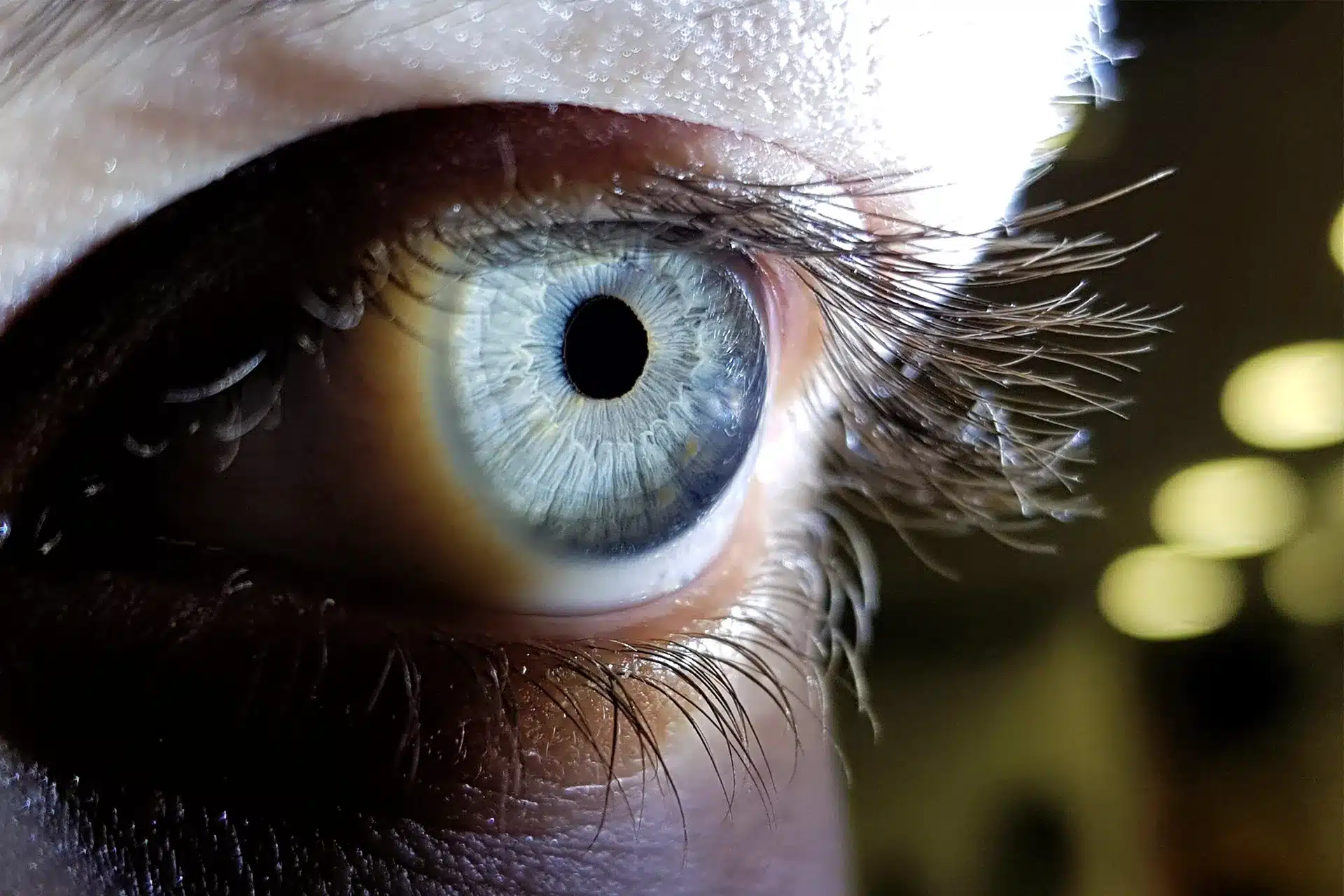Ever noticed tiny, dark specks drifting across your vision while engrossed in a crossword or watching a film? You’re laser-focused, when suddenly one of these shadowy eye floaters momentarily breaks your concentration. You blink, but it persists, dancing just out of sight. These fleeting visual disturbances have you asking: what causes eye floaters? Let’s take a look into their roots, their relationship to cataract surgery, and when you should seek medical attention for them.
What Are Eye Floaters & Why Do They Happen?
Before we get into what causes eye floaters, let’s take a quick peek into the eye itself. Your eye has a clear, jelly-like substance that fills its interior, and when an eye floater – a tiny clump of gel or cells suspended in this liquid – is hit with light, shadows are cast onto the retina, which you perceive as microscopic specks dancing across your field of vision.
What Do Eye Floaters Look Like?
They appear as spots, threads, or delicate cobweb-like shapes that seem to drift just beyond your direct line of sight. They become most apparent when you’re looking at bright, uniform backgrounds—such as a cloudless sky or a pristine white wall—where their subtle movements can momentarily interrupt your visual clarity.
What Causes Eye Floaters? What To Watch For
While often harmless, eye floaters can appear at any age, as young as 20-30, but in those 55+ they can sometimes signal underlying issues that need attention.
Age-Related Changes
The most common cause of eye floaters is the natural aging process of the eye. As we age, the vitreous humor begins to shrink and become more liquid. This process can cause the collagen fibers within the vitreous to clump together, creating the shadows we see as floaters.
6 Eye Conditions Associated With Eye Floaters
Certain eye conditions and procedures can increase the likelihood of experiencing floaters:
- Nearsighted. If you have nearsightedness, the elongated shape of your eye can lead to changes in the vitreous gel, and an increase of eye floaters.
- Posterior Vitreous Detachment (PVD). in rare cases, the shrinking vitreous fluid can pull away from your retina, causing a sudden increase in floaters that are accompanied by flashes of light; this requires an evaluation to rule out more serious conditions.
- Diabetic Retinopathy. This complication of diabetes can cause bleeding in the eye, leading to the appearance of floaters.
- Eye Injuries. Trauma can sometimes result in bleeding or inflammation, which may manifest as floaters.
- Posterior Uveitis. Inflammation in the back of the eye can lead to the release of inflammatory cells into the vitreous, which appear as floaters.
- Retinal Tears. If the vitreous tugs on the retina with enough force, it can cause a retinal tear; requiring medical attention.
The Connection Between Eye Floaters and Cataract Surgery
If you’re considering getting or recovering from cataract surgery, it’s important to know that cataracts are not what causes eye floaters, but are a common occurrence after cataract surgery, where your improved vision makes pre-existing ones more noticeable. Eventually, your brain will adjust to the increased clarity, and they’ll become less noticeable.
Eye Floater Treatment – Natural & Medical
For most, eye floaters are benign, albeit sometimes an annoying part of the aging process. You can manage them by:
1. Getting Regular Eye Exams.
Routine check-ups can help monitor the progression of your eye floaters, to catch if there are any underlying causes that go beyond just age.
2. Making Lifestyle Adjustments.
If able, making simple changes like wearing sunglasses in bright environments can help reduce the visibility of floaters.
3. Using Medical Treatments.
If eye floaters significantly impair vision, you may be referred for a vitrectomy surgery, which removes your vitreous gel along with any eye floaters, or a laser vitreolysis which breaks apart the spots to offer relief.
When Should I Get Professional Care?
If you noticea sudden onset in the number or size of floaters, have eye floaters and flashes of light or experience a curtain-like effect in your peripheral vision, then it’s time to seek out medical attention.
Your Clear Path to Better Vision Starts With Us At Best Cataract Surgeons
Noticing squiggly lines or have any concerns about your vision? Now is the perfect time to connect with a qualified cataract surgeon who can provide personalized care and support. Taking this proactive step will ensure you receive the expert guidance necessary to address any changes in your vision, whether that’s prior to or after cataract surgery.











